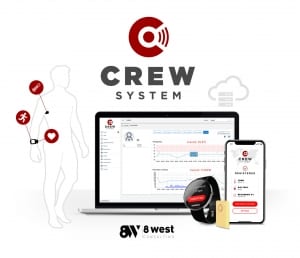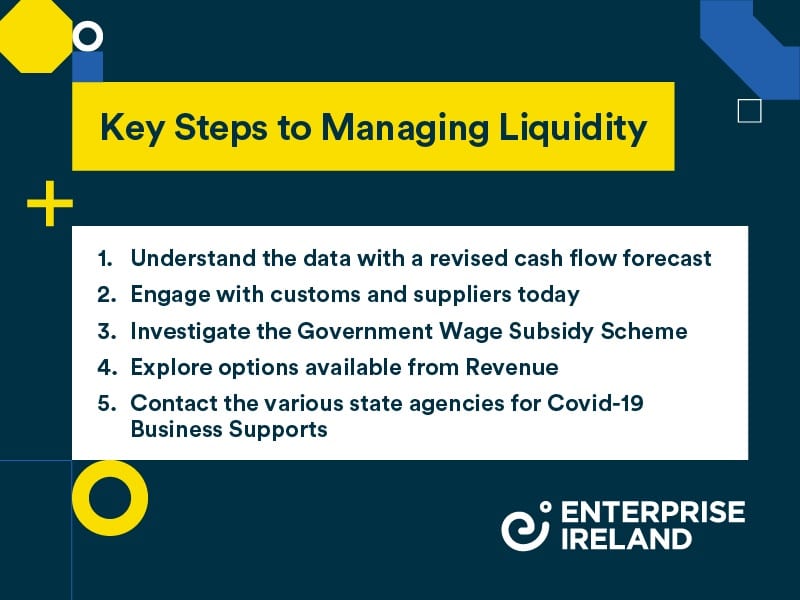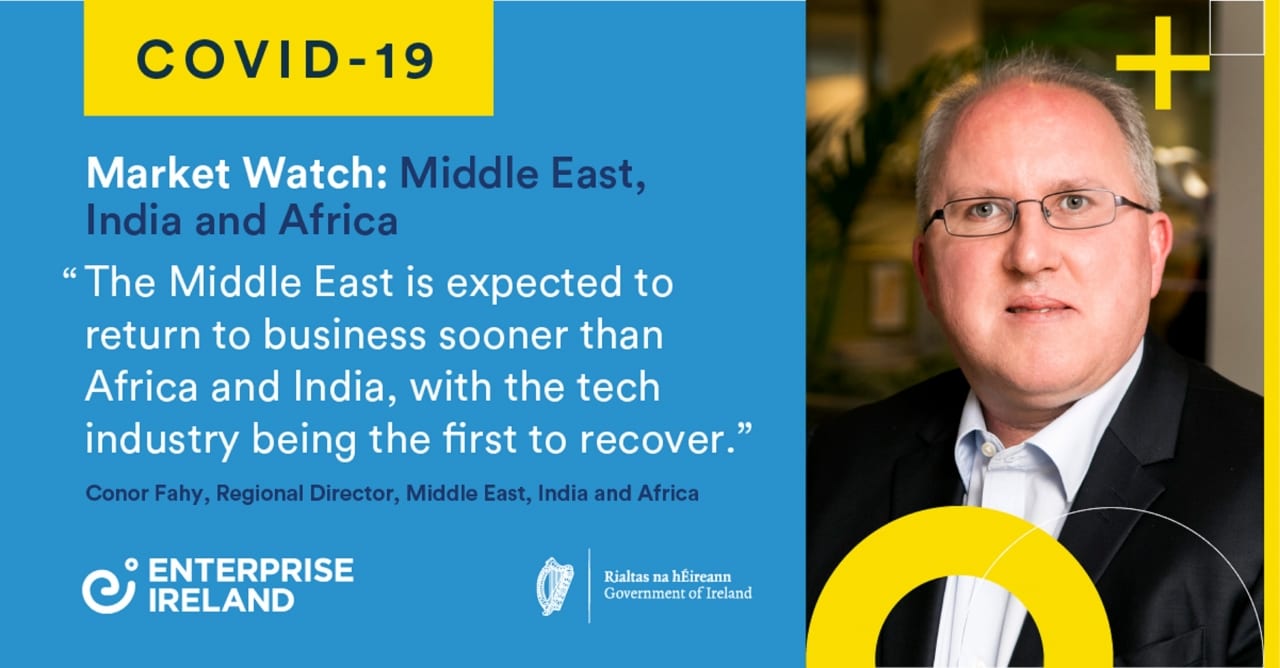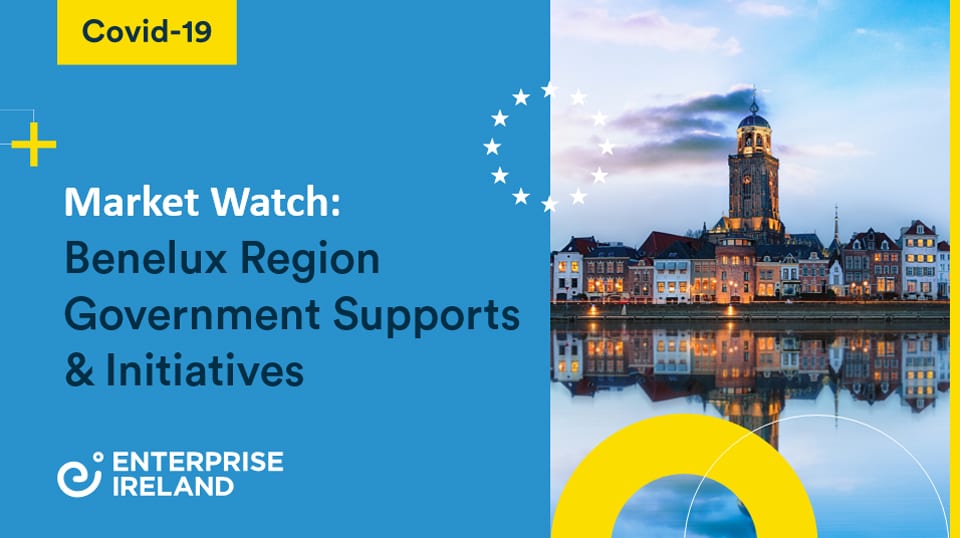Evolve UK – Construction and the impact of Covid-19 webinar
8 West is the company behind an innovative new remote monitoring system, CREW, which is designed to protect frontline healthcare workers and their patients from the spread of Covid-19.
CREW, an acronym for Covid19 Remote Early Warning System, remotely identifies healthcare workers who develop a temperature.
A rise in body temperature is the symptom that is most common among all sufferers of virus. A spike in temperature, particularly when combined with an increased heart rate, at a time when no other physical activity is taking place – such as when a person is asleep – can provide a key early warning sign for the onset of Covid19.
CREW consists of a wearable digital thermometer sensor which measures body temperature, and a sensor platform such as a smart phone, smart watch or other IoT (internet of things) device, which runs the CREW app.
A cloud based server then runs the CREW system, monitoring incoming data from frontline workers wearing the device. If an elevated temperature is recorded over a specified time frame, CREW generates an automatic alarm warning both the wearer and their employer of their need to take remedial action and self-isolate.
The system has been developed by 8 West in partnership with the Ireland’s College of Medicine and Health at University College Cork (UCC), its ASSERT Centre and the renowned Tyndall Institute. 
UCC’s ASSERT Centre enables clinicians to design, develop, deploy and trial innovative healthcare solutions in a simulated healthcare environment. The Tyndall National Institute is a leading European research centre specialising in integrated ICT hardware and systems.
Trials are being undertaken at Cork University Hospital.
“CUH Emergency Department staff are delighted to have helped pioneer an innovative 24 hour monitoring device like this,” says Professor Stephen Cusack, recently retired Professor of Emergency Medicine at University College Cork and emergency medicine consultant at Cork University Hospital.
“We are 24 hours on the front line of care daily, and it’s good to know that efforts like this are being made to support our wellbeing 24 hours a day too.”
8 West has extensive experience in developing remote monitoring safety and security systems.
The company, which has been in operation since 1998, specialises in providing technology service solutions to the healthcare and retail sectors to international clients such as insurers Anthem, Delta Dental and DentaQuest, and brands such as Estee Lauder and Ralph Lauren.
It is a product innovator too however, developing its own proprietary solutions. One of these is SafeTrx, which is now Europe’s leading tracking and alerting software platform for the marine sector and which was used in 625 rescue missions last year.
It is thanks to SafeTRX that 8 West has an established presence in the Middle East. A bespoke version of what was originally a marine product is now relied on by Dubai’s police force as a way to remotely monitor and leisure sailors in Dubai waters.
CREW is available on iOS and Android smart phones, Apple WatchOS and Google smartwatch operating system WearOS with the mSafety platform from Sony to follow soon. In developing it 8 West received technical and hardware support from a range of companies including Sony Network Communications Europe, Cambridge Wireless, Vodafone Ireland, Huawei, Davra, BlueBridge Technologies and PMD Solutions.
According to 8 West founder and co-chief executive John Murphy, the solution was developed from start to finish in just three weeks, “a Herculean effort from our employees” and a part of its contribution to the global crisis.
As such he believes an early warning system such as CREW, alongside measures such as social distancing and workplace deep cleaning, will be required for a long time to come as part of all employers’ duty of care to staff.
In the meantime, his goal is to make CREW available to as many frontline staff as possible around the world as soon as possible.
It has the potential to help not only individual medics but the wider hospital and nursing home communities and the general public too, says Murphy, who is due to meet with healthcare sector representatives from Oman, Kuwait and the UAE over the coming weeks.
In developing CREW 8 West didn’t just leverage its own SafeTRX technology, it leveraged Ireland’s uniquely collaborative technological eco-system, he points out.
CREW’s market expansion strategy is being supported by the Enterprise Ireland team in Dubai who are working closely with 8 West to identify optimal routes to market with key local partners.
According to Mike Hogan, Regional Manager Enterprise Ireland, “Markets across the Middle East are always keen to acquire cutting edge technologies and we think this is even more prevalent in the current situation fighting the spread of Covid-19. I’m sure 8 West’s CREW solution will play a big part in fighting the spread of the disease and protecting the frontline health workers who are doing an incredible job keeping our communities safe”.
Read more about the Irish companies using innovation to make a difference.

The challenge for all of these companies is how to manage their liquidity through the coming weeks and months to ensure they are in a position to take advantage of the recovery when it does come.
Interestingly, recent events have served to prepare Irish companies for the shock. “We have been talking to a lot of companies in our role as an outsourced CFO,” says Barry Doyle, director of specialist financial advisory firm SGL.
Of course, the scale of the impact of the Covid-19 crisis is greater by an order of magnitude. “This will mean a shutdown for many companies and a full loss of income for a sustained period,” Doyle points out. “They are seeing zero revenues on one hand while they face continued expenditure on staff, suppliers, customers and so on.”
Dealing with that situation begins with data. “The starting point is a detailed cashflow forecast,” Doyle advises. “That’s key to understanding where you are.” And what you need to do.
He describes cash and communication as the key elements of the approach to be taken once the forecast is complete.
And that’s where the communication comes in. “You have to talk to your customers to identify what receipts are likely to come in. Are they still open? Are they still in a position to pay bills? Talk to your suppliers to see if they can extend credit to you. Part pay bills if necessary.”
Doyle says the best way for businesses to look at this situation is as akin to hibernation. “They have to squirrel away cash for when spring comes, so they can take advantage of the bounce that will come then. Many companies have seen this coming and have been working with their customers to get as much cash in as possible. Companies who haven’t done this should run an aged debtor analysis to see what might be out there. It might be a case of seeing who they can target for payment when business reopens, or it might be identifying customers to work with to find a way through the crisis.”
Cash will still be needed for payroll and other costs, of course. “Nothing is as important as your staff,” Doyle points out. “Your employees are a critical resource in business.”
He believes the Government Wage Subsidy Scheme can help companies avoid the damage of layoffs and advises them to avail of it where possible. “We are working with client companies to help them retain key staff and look after them during the crisis,” he adds.
Doyle’s Co-Director John Power describes the various State initiatives, including the Enterprise Ireland Stabilise and Rebuild Fund, Business Financial Planning Grant as a “huge boost”. Companies should monitor Government support developments and banking facilities offered from main banks and SBCI, to support their Working Capital needs to help them bounce back and restart their businesses quickly when working restrictions are eased
“The decision by Revenue to defer interest and penalties for late payment of VAT has also been very helpful,” he adds. “Revenue is not withholding Tax Clearance Certificates for late payment and that means companies will be able to continue to get paid by public bodies during the crisis.”
Power concludes by noting that businesses now have to become much more disciplined in terms of cost controls as well as in credit control. “In good times it is possible to be a bit more relaxed,” he says. “But companies now have to be a lot more disciplined when it comes to credit control. That means calling in debts as they fall due or even offering discounts to customers for early payment. They have got to build as much working capital as they can. Cash is king. That’s never been truer.”
In conjunction with Enterprise Ireland, The HR Suite has produced ‘Covid-19: An Employer’s Guide’, a detailed document that outlines everything business owners and managers need to know about their responsibilities towards employees during this challenging time.
Caroline McEnery, Managing Director of the HR Suite says,
The main points employers need to be aware of is emergency legislation introduced by the Government related to employee wages and payments.
Companies who can show their turnover has reduced by more than 25% due to Covid-19 may qualify for the Wage Subsidy Scheme. This provides a temporary wage subsidy of up to 85% of take home pay up to a maximum weekly amount of €410 per week to affected companies to help them continue to pay their employees.
Separately, employees who lose their jobs qualify for the new Covid-19 Pandemic Unemployment Payment of €350 a week for up to 12 weeks.
A new Illness Benefit, paid at the same rate, is also available — for two weeks to any employee medically required to self-isolate and for up to 10 weeks for any employee diagnosed with Covid-19.
Among the older laws employees may now find relevant is the Redundancy Payments Acts 1967-2014. Under this act, people who are temporarily working fewer hours than they normally would can claim for a payment called Short Time Work Support. It is paid at the same level as Jobseeker’s Benefit (€203 a week), but on a pro rata basis for the days the person is not working.
Layoffs are also covered under the Redundancy Payments Acts. Employers can place employees on a period of temporary unpaid layoff if they believe they will be able to have them back in paid work again when the crisis passes. Employees who have been temporarily laid off qualify for the Covid-19 Pandemic Unemployment Payment, as outlined above.
“The only difference now is that if an employee were laid off previously, they could apply for redundancy after four weeks. That option is paused until the end of May [2020] and will be reviewed again then,” said McEnery.
With the Covid-19 situation remaining fluid, McEnery says employers should keep up to speed with what is happening and make sure their employees are in the loop too.
“Review your plans every two weeks in line with the latest Government and HSE guidance, while taking into account what is happening in your business,” she says, adding that employers should also make sure they keep communications channels open with their employees and make sure they are informed of any changes they should know about.

Key Takeaways
“The area encompasses over 40% of the world population so lockdown and self-isolation presents many challenges,” says the regional director. “The situation in the Middle East is similar to Europe in timing and response and most companies are expecting a decrease in revenue and are looking to cut costs and consider cost containment and defer or pause investments.
“The double whammy of an oil price war and Covid-19 will affect budgets and Dubai has introduced highly restrictive measures, including closing its airport, so there is a risk of a sharp increase in business defaults and liquidations in the travel and tourism industry. Also borders have closed across the region and major international events have been cancelled or delayed.
“India and Africa are currently around three weeks behind in terms of cases and government response. But business is severely affected, while economic activity is suffering from the initial phases of lockdown. The medium-term impacts will be severe and combined with oil-price shock and reduced demand for commodities, the region is likely to tip into an economic contraction in 2020/21, in the absence of major fiscal stimulus.”
There are eight Enterprise Ireland offices across the region which are helping Irish companies stay informed, connected and exporting. And Fahy says it’s crucial for people to avail of this support and keep communications lines open in order to survive the challenges.
“Personal connection is vital to winning and retaining business so it’s essential to stay connected with existing customers. Be the trusted source of information: and proactively communicate with accurate market information and insights from your industry contacts, and from Enterprise Ireland’s Market Research Centre. When things get tough, the temptation is to become acutely focused on immediate problems but while these should be addressed, developing a strategy for recovery is just as vital. So extend your timeline assumptions and planning-against scenarios, even if it appears difficult. Now is the time to invest in strategic planning and to start thinking through decision criteria and conditions for return to business.”
Many organisations are still dealing with immediate concerns around the availability of cash.
While all sectors are being affected across the region, Tourism, Aviation, Construction, Industrial Manufacturing and Mining and Oil industries have been hardest hit but technology related businesses will be the first to make a recovery.
“CFOs in the Middle East are expecting to get back to normal sooner rather than later; pausing or delaying investments instead of cancelling them altogether,” he says. “In fact, the majority expect to return to business as usual within three months if Covid-19 were to end today.
While there are certainly challenges facing Irish exporters, Fahy says there are also some emerging opportunities, particularly for digital payments and cloud services.
“The near collapse of many online grocery retail platforms is driving demand for process automation and intelligent self-service and Irish companies quickly recognize the changing market dynamics,” he says. “But while positivity may be in short supply, there is optimism in around returning to business and continuing to invest where it matters.
“Business leaders need to invest time away from crisis management to show leadership and strategically look to future opportunities which will emerge when these economies rebound.”
Download the bulletin here.
Download the bulletin here.
Download the bulletin here.
